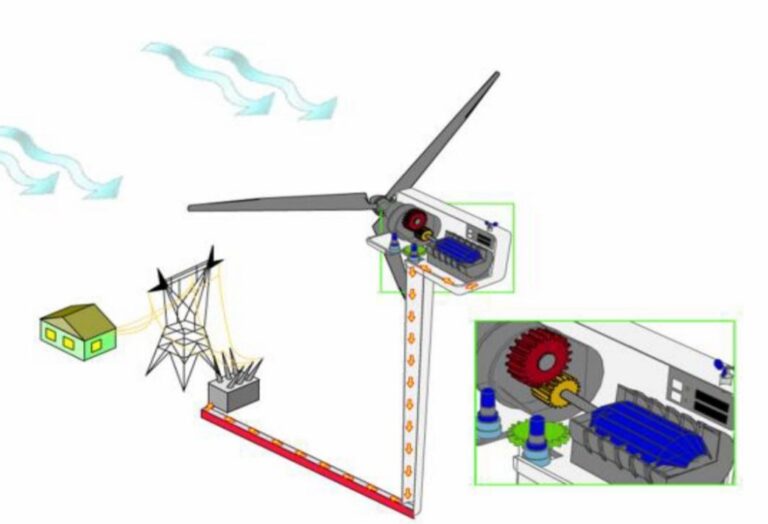Comparison of D.C. and A.C. Transmission:
The electric power can be transmitted either by means of d.c. or a.c. Each system has its own merits and demerits. It is, therefore, desirable to discuss the technical advantages and disadvantages of the two systems for transmission of electric power.
1. D.C. transmission:-
. For some years past, the transmission of electric power by d.c. has been receiving the active consideration of engineers due to its numerous advantages.
Advantages: –
(i) It requires only two conductors as compared to three for a.c. transmission.
(ii) There is no inductance, capacitance, phase displacement and surge problems in d.c. transmission.
(iii) Due to the absence of inductance, the voltage drop in a d.c. transmission line is less than the a.c. line for the same load and sending end voltage. For this reason, a d.c. transmission line has better voltage regulation
. (iv) There is no skin effect in a d.c. system. Therefore, entire cross-section of the line conductor is utilised.
(v) For the same working voltage, the potential stress on the insulation is less in case of d.c. system than that in a.c. system. Therefore, a d.c. line requires less insulation.
(vi) A d.c. line has less corona loss and reduced interference with communication circuits.
(vii) The high voltage d.c. transmission is free from the dielectric losses, particularly in the case of cables.
(viii) In d.c. transmission, there are no stability problems and synchronising difficulties.
Disadvantages:-
(i) Electric power cannot be generated at high d.c. voltage due to commutation problems.
(ii) The d.c. voltage cannot be stepped up for transmission of power at high voltages.
(iii) The d.c. switches and circuit breakers have their own limitations.
2. A.C. transmission.:-
Now-a-days, electrical energy is almost exclusively generated, transmitted and distributed in the form of a.c.
Advantages:-
(i) The power can be generated at high voltages.
(ii) The maintenance of a.c. sub-stations is easy and cheaper.
(iii) The a.c. voltage can be stepped up or stepped down by transformers with ease and efficiency. This permits to transmit power at high voltages and distribute it at safe potentials.
Disadvantages:-
(i) An a.c. line requires more copper than a d.c. line.
(ii) The construction of a.c. transmission line is more complicated than a d.c. transmission line.
(iii) Due to skin effect in the a.c. system, the effective resistance of the line is increased.
(iv) An a.c. line has capacitance. Therefore, there is a continuous loss of power due to charging current even when the line is open
